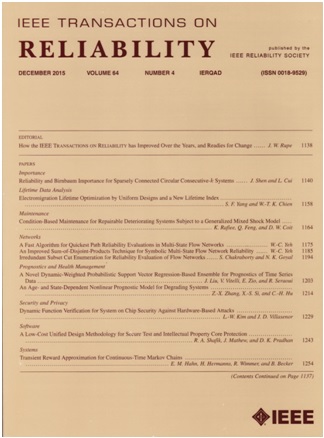Evolutionary Adversarial Autoencoder for Unsupervised Anomaly Detection of Industrial Internet of Things
IF 5.7
2区 计算机科学
Q1 COMPUTER SCIENCE, HARDWARE & ARCHITECTURE
引用次数: 0
Abstract
The rapid growth of interconnected smart devices and advanced computing technologies in the industrial Internet of Things (IIoT) has significantly enhanced operational resilience and performance but also increased cybersecurity risks. While deep learning shows promise in IIoT security, it faces challenges due to the lack of labeled data and reliance on human expertise for unsupervised anomaly detection. To address these challenges, a novel automated adversarial deep learning-based unsupervised anomaly detection method called EvoAAE is proposed to optimize the hyperparameters and neural architectures of adversarial variational autoencoder (VAE) for securing IIoT. Specifically, a generative adversarial network-based VAE is employed to adversarially generate multivariate time series. Then, particle swarm optimization with an efficient binary encoding strategy is designed to evolve hyperparameters and neural architectures in adversarial VAE including batch size, learning rate, the type of optimizer, the number of convolutional layer, the number of kernels of convolutional layer, kernel size, the type of normalization layer, and the type of active function. The experimental results indicate that EvoAAE achieves notable performance across four IIoT datasets in industrial control domain, i.e., secure water treatment, water distribution, Mars Science Laboratory, and power system domain, i.e., power system attack with precision of 0.949, 0.8356, 0.972, and 0.981, recall of 0.971, 0.9214, 0.964, and 0.979, and面向工业物联网无监督异常检测的进化对抗自编码器
工业物联网(IIoT)中互联智能设备和先进计算技术的快速增长显著增强了运营弹性和性能,但也增加了网络安全风险。虽然深度学习在工业物联网安全方面显示出前景,但由于缺乏标记数据和依赖人类专业知识进行无监督异常检测,它面临着挑战。为了解决这些挑战,提出了一种新的基于深度学习的自动对抗无监督异常检测方法EvoAAE,以优化对抗变分自编码器(VAE)的超参数和神经结构,以保护工业物联网。具体而言,采用基于生成式对抗网络的VAE来对抗生成多元时间序列。然后,设计了一种有效的二进制编码策略的粒子群优化算法来进化对抗VAE中的超参数和神经结构,包括批大小、学习率、优化器类型、卷积层数、卷积层核数、核大小、归一化层类型和主动函数类型。实验结果表明,EvoAAE在工业控制领域(安全水处理、配水、火星科学实验室和电力系统领域)的4个工业物联网数据集上取得了显著的性能,即电力系统攻击的准确率分别为0.949、0.8356、0.972和0.981,召回率分别为0.971、0.9214、0.964和0.979,$ f_{1}$-score分别为0.960、0.8764、0.968和0.980。
本文章由计算机程序翻译,如有差异,请以英文原文为准。
求助全文
约1分钟内获得全文
求助全文
来源期刊

IEEE Transactions on Reliability
工程技术-工程:电子与电气
CiteScore
12.20
自引率
8.50%
发文量
153
审稿时长
7.5 months
期刊介绍:
IEEE Transactions on Reliability is a refereed journal for the reliability and allied disciplines including, but not limited to, maintainability, physics of failure, life testing, prognostics, design and manufacture for reliability, reliability for systems of systems, network availability, mission success, warranty, safety, and various measures of effectiveness. Topics eligible for publication range from hardware to software, from materials to systems, from consumer and industrial devices to manufacturing plants, from individual items to networks, from techniques for making things better to ways of predicting and measuring behavior in the field. As an engineering subject that supports new and existing technologies, we constantly expand into new areas of the assurance sciences.
 求助内容:
求助内容: 应助结果提醒方式:
应助结果提醒方式:


